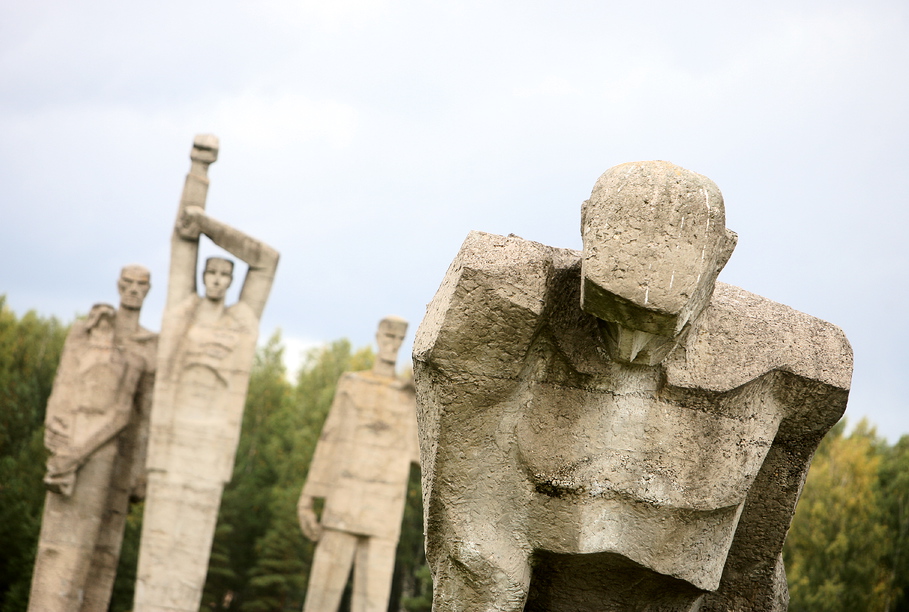The cancellation of the show entitled “Stolen childhood: Holocaust victims seen by Child Inmates of Salaspils Nazi Concentration Camp” came after Latvia’s UNESCO National Commission objected to the fact that its curator is Aleksander Dyukov - himself blacklisted from entry to both Latvia and Lithuania.
Dyukov was barred from entering Latvia in 2012 for remarks inimical to the sovereign independence of the two nations, and was using the exhibition to wage ideological war rather than giving an accurate historical account of the grim reality of Salaspils, in Latvia's view.
Foreign Ministry spokesperson Kārlis Eihenbaums, confirming that Latvia exercised an objection to the exposition, explained that Dyukov had “expressed openly hostile and unfriendly statements about Latvia and its people.”
Foreign Minister Edgars Rinkevics himself also waded into the debate with a strongly-worded tweet declaring:
Allegations by RU that LV blocks exhibition on holocaust at UNESCO are lies, we don't accept propaganda by Kremlin's diukovs', we need truth
— Edgars Rinkēvičs (@edgarsrinkevics) January 23, 2015
Latvia’s chief delegate to UNESCO, Sanita Pavluta-Deslandes, said the exposition risked damaging her country’s image during its presidency of the European Union, which the Baltic country assumed on January 1 and will hold until the end of June.
The public relations tangle comes just a week before UNESCO hosts a concert by the Jerusalem Symphony Orchestra followed by a round table conference and official ceremony for the International Day of Commemoration in Memory of the Victims of the Holocaust.
But UNESCO policy does give member states veto power over events organized by other member states.
A historian interviewed by LSM’s cultural section last October outlined why Latvia might feel queasy about Dyukov’s group, the Historical Memory Foundation, assembling a photo exhibit on behalf of Russia and Belarus about Holocaust-related events taking place on Latvian soil.
Historians Uldis Neiburgs, Kārlis Kangers and Rudīte Vīksna are only planning to release their own book on the Salaspils concentration camp from 1941-1944 next year.
According to Neiburgs, whom LSM interviewed in October, “we must certainly acknowledge that the Salaspils camp was a crime. Thousands of victims suffered from malnutrition, died of disease, were physically and mentally abused. These were national-socialist Germany’s crimes of power in which Latvian citizens were involved, both as prisoners and as prison guards. Citizens of other countries wound up in Salaspils, too,” he explained.
The authors of the work in progress believe the camp’s history has been written from a purely Soviet-era occupation regime perspective and currently is full of myths and fallacies that objective research is still trying to sort out. Stalinism period accounts tell of up to 100,000 dead.
“We can surely prove two to three thousand perished here, but we simply cannot confirm any figures in the five- or let alone six-digit figures,” Neiburgs told LSM.




























